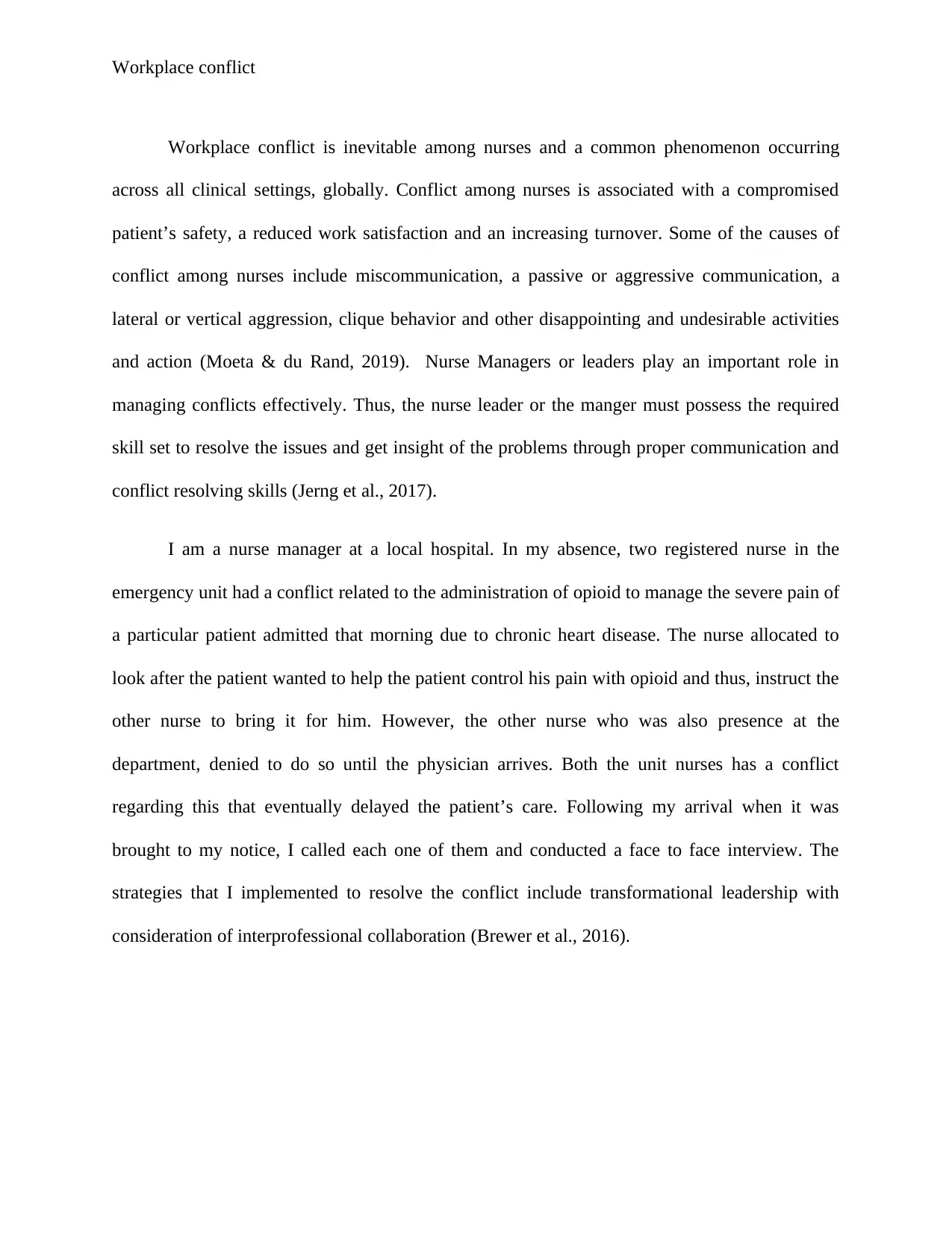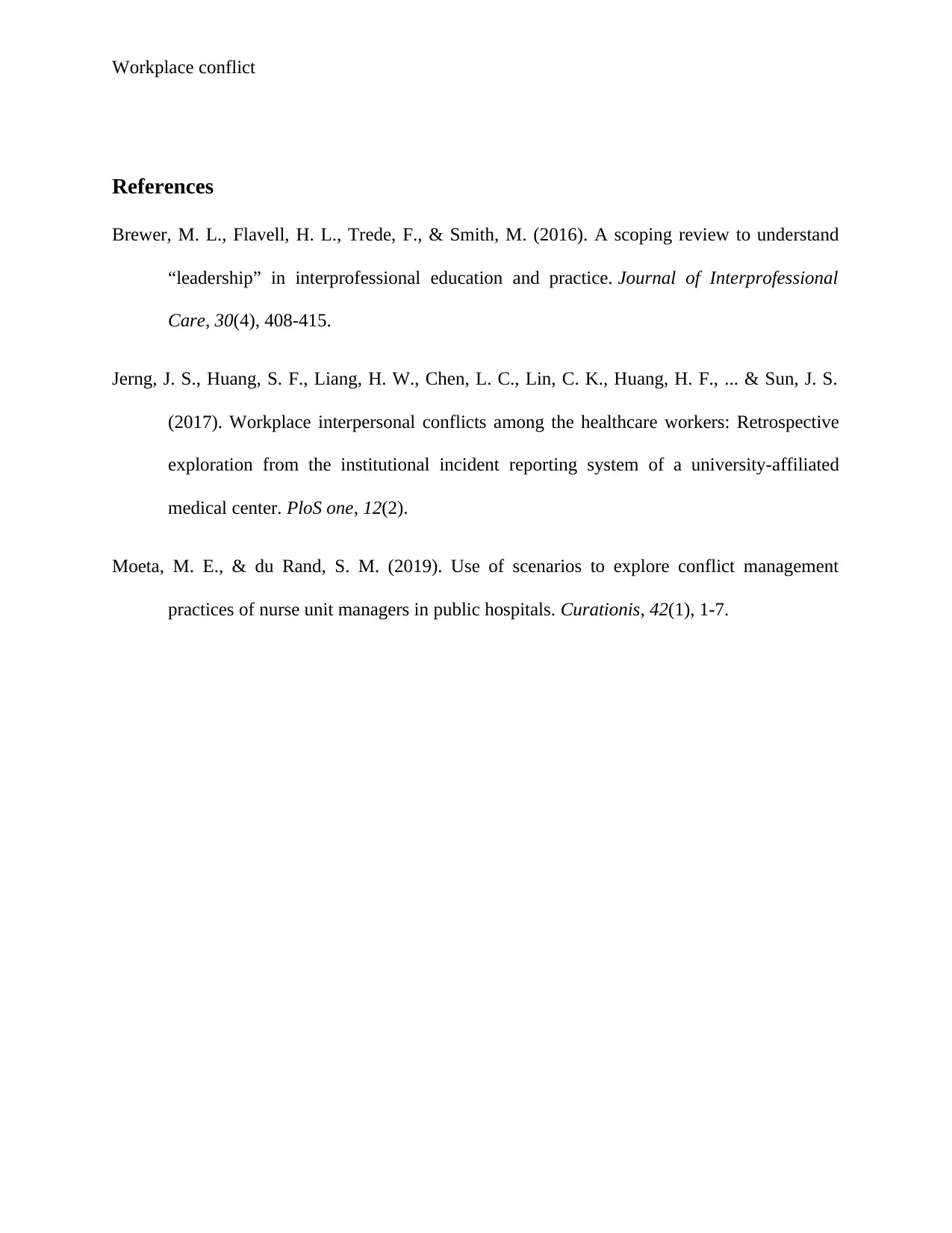Case Study: Conflict Resolution Strategies for Nurse Managers
VerifiedAdded on 2022/08/24
|3
|483
|21
Case Study
AI Summary
This case study explores a workplace conflict scenario in a hospital setting, involving two nurses in the emergency unit. The conflict arose over the administration of opioids to a patient with chronic heart disease. The nurse manager intervened to resolve the conflict, implementing strategies such as face-to-face interviews and transformational leadership with consideration of interprofessional collaboration to address the issue. The case study highlights the importance of effective conflict resolution skills for nurse managers in maintaining a positive work environment and ensuring patient safety. The solution provides a detailed analysis of the conflict, the manager's actions, and relevant references.
1 out of 3










![[object Object]](/_next/static/media/star-bottom.7253800d.svg)